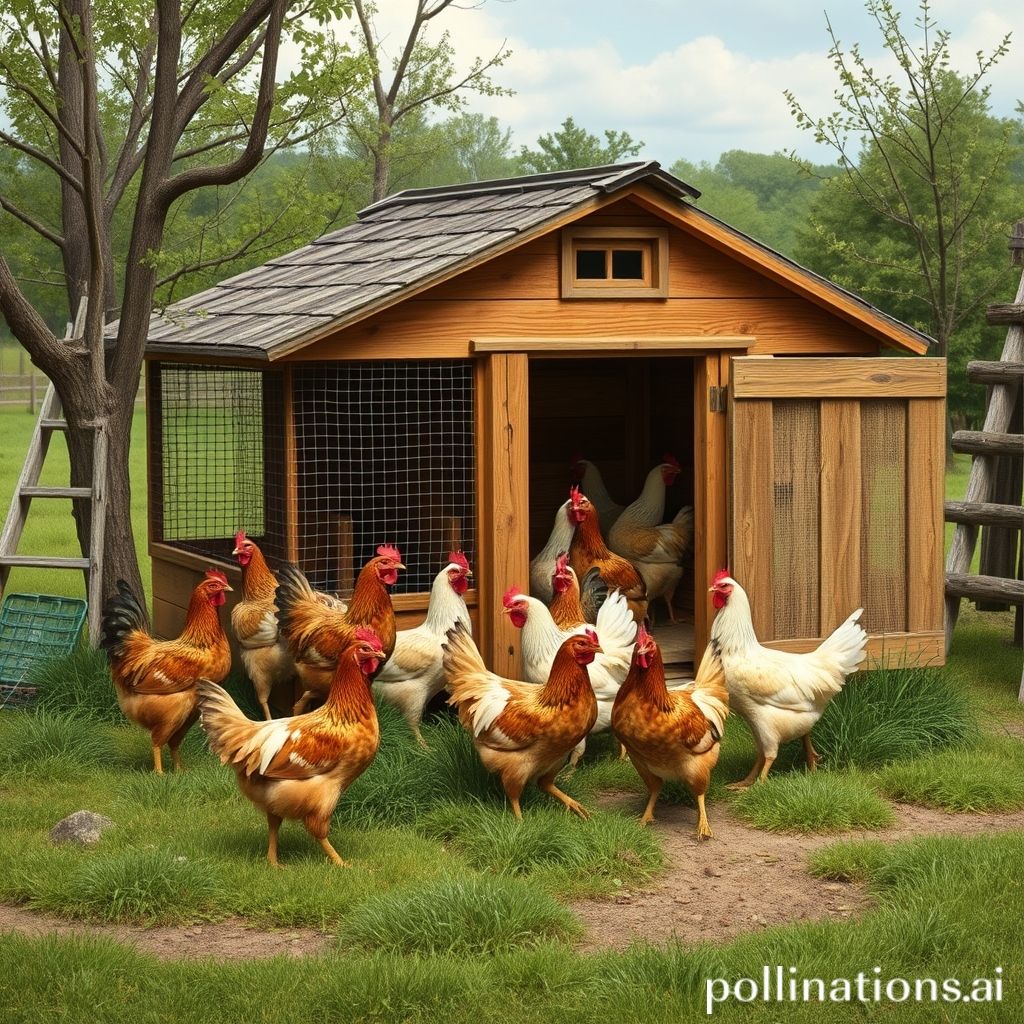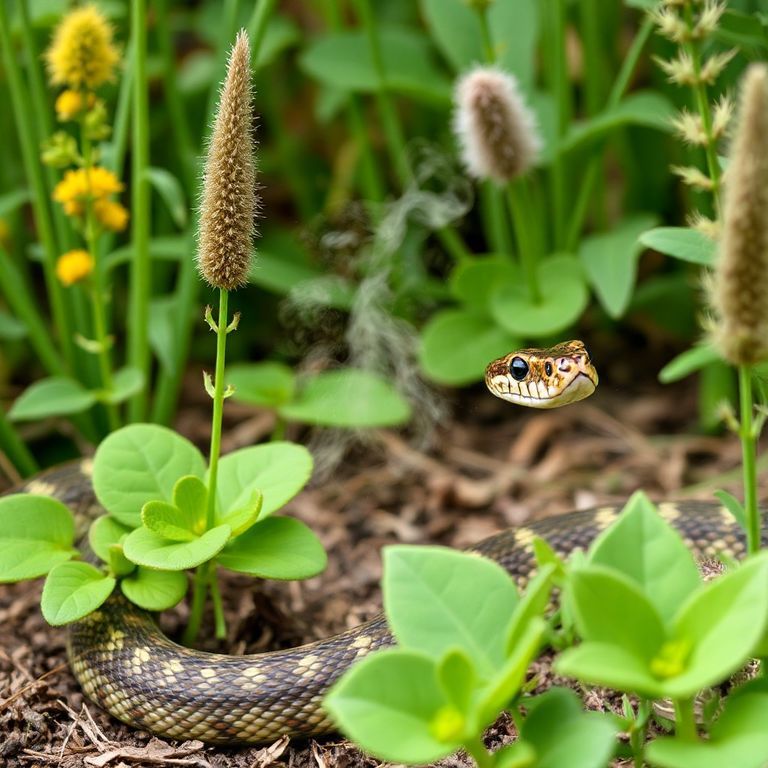Warding off slithering threats to our feathered friends is no easy task. In regard to protecting chickens from snakes, knowledge is power.
Whether you’re a seasoned chicken keeper or a novice in the coop, learning how to keep snakes away is essential for ensuring the safety and tranquility of your flock. Snakes can pose a significant danger to chickens, devouring eggs, chicks, and even fully grown birds. To prevent these stealthy predators from infiltrating your coop, it’s crucial to employ effective strategies and implement preventative measures. By creating physical barriers, modifying the habitat, and utilizing natural deterrents, you can shield your chickens from the serpentine menace. With these practical tips, you’ll maintain a snake-free haven for your beloved flock.
Eaton Pet and Pasture, Premium Laying Hen Nesting Pads
Comfort and Quality for Your Hens
Physical barriers
An effective method to keep snakes away from chickens is by installing fencing that is snake-proof. This physical barrier acts as a deterrent, stopping snakes from entering the chicken coop or the surrounding area. Snake-proof fencing is typically made of a strong material, like galvanized steel, that is buried a few inches into the ground and extends above the ground to at least three feet in height. This ensures that snakes cannot dig under or climb over the fence to reach the chickens.
1. Installation of snake-proof fencing
When setting up snake-proof fencing, it is crucial to ensure that there are no gaps or openings that snakes can exploit. The fence should be securely fastened to the ground, with no loose or sagging sections. Additionally, the top of the fence can be angled outward to make it more challenging for snakes to climb over. Regular inspections and maintenance of the fencing are essential to ensure its effectiveness in keeping snakes out.
2. Securing coop entrances to prevent snake entry
Alongside snake-proof fencing, securing the entrances of the chicken coop is another important measure to prevent snakes from getting in. This involves inspecting and repairing any gaps or holes in the walls, windows, doors, or vents of the coop. Snakes are skilled at squeezing through small openings, so it is vital to seal any potential entry points. Using materials like hardware cloth or mesh screens can effectively block snake access Whilst still allowing for proper ventilation.

Habitat Modifications
Touching on keeping snakes away from your chickens, implementing habitat modifications can be an effective strategy. By making a few simple changes to your chicken coop area, you can create an environment that is less attractive to snakes and reduces the risk of snake attacks. Here are some key steps to consider:
1. Removing Potential Snake Hiding Spots
Snakes are skilled at finding hiding spots where they can stay undetected. By eliminating these hiding spots near your chicken coop, you can make it less appealing for snakes to stick around. Here are some measures you can take:
- Clear clutter: Get rid of any debris, piles of wood, or rocks that could serve as hiding spots for snakes.
- Seal openings: Check for any gaps or holes in the coop structure and seal them off. This prevents snakes from slithering their way in.
- Trim vegetation: Cut back any overgrown shrubs or bushes near the coop. Snakes may use these as hiding spots or pathways.
2. Clearing Vegetation Around the Coop Area
Vegetation provides cover for snakes and can make it easier for them to approach your chicken coop unnoticed. By clearing vegetation around the coop area, you can create a more open and less desirable environment for snakes. Consider the following:
- Mow the grass: Keep the grass around the coop area short. This reduces hiding places for snakes and increases visibility.
- Remove dense plants: If there are any dense shrubs or plants close to the coop, remove them. Snakes may use them as camouflage.
- Create a barrier: Consider installing a snake-proof fence around the coop area. This physical barrier can effectively prevent snakes from entering.
| Key Steps | Benefits |
|---|---|
| Clear clutter, seal openings, and trim vegetation | Eliminates potential snake hiding spots and prevents their access to the coop |
| Mow the grass, remove dense plants, and create a barrier | Reduces vegetation cover, increases visibility, and provides a physical barrier against snakes |
Natural Repellents
As for protecting your chickens from snake encounters, using natural repellents can be a reliable strategy. By implementing these methods, you can create an environment that discourages snakes from approaching your coop.
1. Planting Snake-Repelling Plants
One effective way to keep snakes away from your chickens is by strategically planting snake-repelling plants around the chicken coop and surrounding areas. These plants emit odors that snakes find unpleasant, deterring them from entering the area. Some commonly used snake-repelling plants include:
- Marigolds: These vibrant flowers not only add beauty to your garden but also repel snakes with their strong scent.
- Onions and Garlic: The pungent smell of these kitchen staples can help keep snakes at bay.
- Lemongrass: This fragrant grass emits a scent that snakes find repulsive, making it an effective deterrent.
2. Using Predator Urine or Scents to Repel Snakes
Another natural way to deter snakes from approaching your chicken coop is by utilizing predator urine or scents. Snakes are instinctively cautious of predators, and the presence of their urine or scents can make them think twice about entering an area. Consider the following options:
a) Coyote Urine:
Coyotes are natural predators of snakes, and their urine can be an effective deterrent. Apply coyote urine around the perimeter of your coop to create a barrier that snakes are reluctant to cross.
b) Essential Oils:
Several essential oils, such as clove oil, cinnamon oil, and cedar oil, have strong scents that repel snakes. Dilute these oils with water and spray the mixture around the coop to discourage snakes from approaching.

Regular Maintenance and Inspection
Regular maintenance and inspection of your chicken coop is essential for ensuring the safety and well-being of your flock. By upholding these steps, you can reduce the risk of snakes entering your coop and posing a threat to your chickens.
1. Checking for Signs of Snake Presence
It is important to regularly check your chicken coop for any signs of snakes. Look for shed snake skins, snake droppings, or any other indications that snakes may have been in the area. If you notice any of these signs, take immediate action to deter snakes from entering the coop.
Implementing Physical Barriers
One effective way to keep snakes away from your chickens is by using physical barriers. Make sure your coop is properly secured with sturdy fencing that has small gaps, as snakes can squeeze through small openings. Consider installing snake-proof wire mesh around the coop and burying it at least six inches deep to prevent snakes from burrowing under the fencing.
Keeping the Coop Clean and Free of Potential Snake Attractants
Snakes are attracted to areas where they can find food and shelter. To minimize the chances of snakes being drawn to your coop, keep the area clean and free of potential attractants. Remove any debris, such as piles of wood or brush, that could provide hiding spots for snakes. Also, ensure there are no sources of food, such as spilled chicken feed, which can attract rodents that, in turn, attract snakes.
Teaching Chickens About Snakes
1. Training Chickens to Recognize and Avoid Snakes
It is important to educate chickens about snakes in order to keep them safe and protected. By teaching them how to identify and stay away from snakes, you can greatly reduce the risk of snake-related harm. Here are some effective methods:
a. Introducing Chickens to Snake Appearance and Movement
Expose chickens to images or videos of snakes to help them become familiar with the way snakes look and move. This visual training will help chickens develop a natural aversion to snakes.
b. Using Positive Reinforcement Techniques
Reward chickens with treats or praise when they respond appropriately to snake-related cues. This positive reinforcement will strengthen their instinct to avoid snakes.
c. Creating Controlled Snake Encounters
Gradually introduce chickens to non-venomous snakes in a controlled environment. This hands-on training will teach chickens how to react when they encounter snakes in the future.
2. Alerting Chickens of Snake Presence with Visual or Auditory Cues
In addition to training, visual or auditory cues can be effective in warning chickens about the presence of snakes. These cues will help chickens stay vigilant and take necessary precautions. Consider the following methods:
a. Using Snake-shaped Decoys
Strategically place snake-shaped decoys around the chicken coop or outdoor areas. The presence of these decoys will trigger chickens’ natural fear response, making them cautious and more likely to avoid potential snake threats.
b. Installing Motion-activated Deterrents
Install devices that emit sounds or create sudden movements when triggered by snake activity. These deterrents will startle snakes and alert chickens to their presence.
c. Playing Recordings of Natural Predator Sounds
Play recordings of natural predator sounds, such as hawks or eagles, near the chicken coop. These sounds will mimic potential threats and encourage chickens to be on high alert, deterring them from approaching areas where snakes may be found.
Conclusion
Protecting your chickens from snakes is crucial to their safety and well-being. By implementing a few preventive measures, such as securing their coop and outdoor areas, removing potential hiding spots, and using snake repellents, you can significantly reduce the risk of snakes infiltrating your chicken coop.
Additionally, promoting a clean and tidy environment, regularly inspecting your surroundings, and educating yourself about local snake species can further enhance your chickens’ defense against these slithering predators. Remember, the key to keeping snakes away from your chickens lies in proactive measures and vigilance.
Frequently Asked Questions about Snakes in Chicken Coops
FAQ 1: How do I identify snake presence in my chicken coop?
Look for common signs of snake presence in your chicken coop, such as shed snake skins, snake droppings, or fresh snake tracks. Additionally, keep an eye out for any unusual behavior in your chickens, such as increased anxiety or avoidance of certain areas.FAQ 2: Can snakes climb over fences?
Yes, snakes are skilled climbers and can climb over fences. To keep snakes out, consider adding a snake-proof barrier to the top of your fence, such as a smooth metal sheet or roller.FAQ 3: Are all snake-repelling plants safe for chickens?
Not all snake-repelling plants are safe for chickens. Some plants, like marigolds and garlic, may be toxic to chickens if ingested. It’s important to research and choose snake-repelling plants that are safe for your chickens or consider alternative snake control methods.FAQ 4: How often should I inspect my coop for snake activity?
Regular inspections are crucial to detect snake activity early. It is recommended to inspect your chicken coop at least once a week for any signs of snake presence or potential entry points.FAQ 5: Can snakes harm chickens inside the coop?
Yes, snakes can harm chickens inside the coop. Some snake species are known to prey on chickens and their eggs. It’s important to take preventive measures, such as securing the coop with hardware cloth and sealing any gaps or holes, to minimize the risk of snake attacks.Read Similar Post:
1. What Chickens Lay Speckled Eggs?
2. Why Do Chickens Have Wings?

